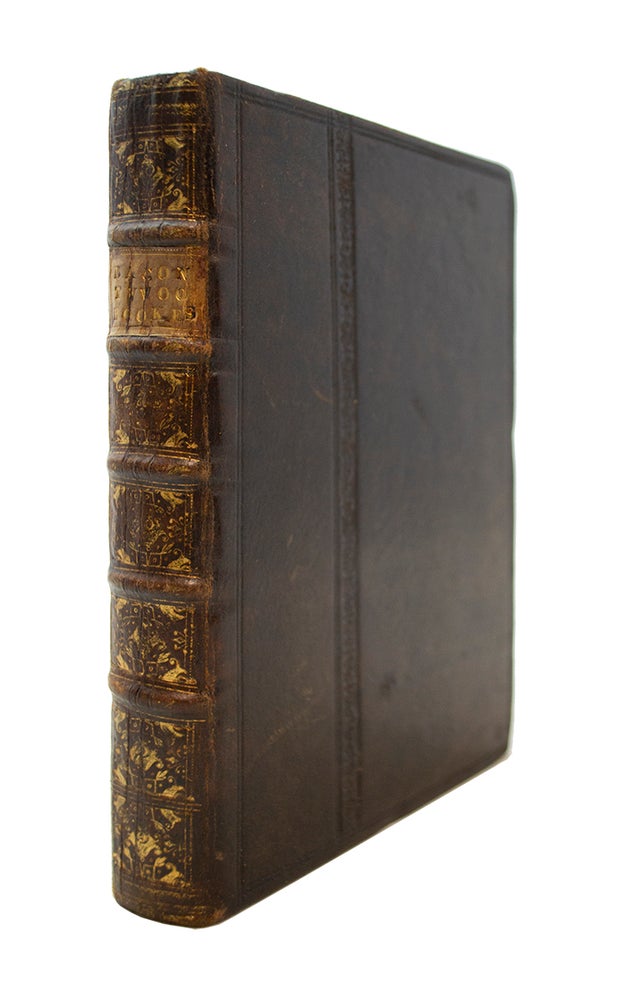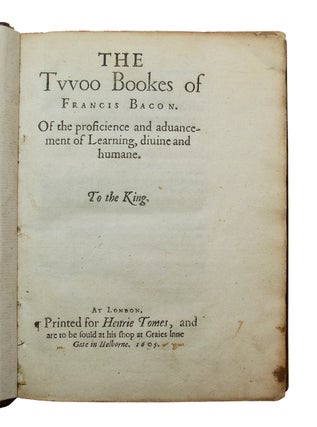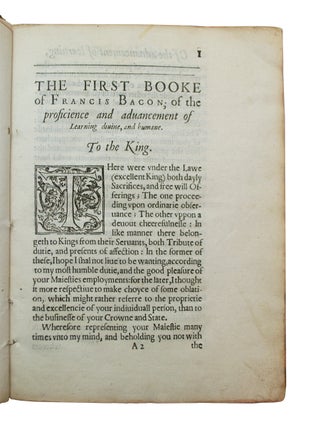Bacon's Philosophy of Scientific Method
Twoo Bookes of Francis Bacon. Of the proficience and advancement of Learning, divine and humane.
London: Printed for Henrie Tomes, 1605.
Full description:
BACON, [Sir] Francis. The Twoo Bookes of Francis Bacon. Of the proficience and advancement of Learning, divine and humane. London: Printed for Henrie Tomes, 1605.
First edition. Two parts in one small quarto volume (7 5/8 x 5 3/4 inches; 195 x 145 mm). [1, title], 45; 118, [i.e., 121] leaves. Bound without initial and final blank leaves or the two extra leaves of errata found only in “a very few copies...probably of the latest sold” (Pforzheimer). C4r, line 5 with variant "maniable" instead of "amiable" and page 118 with page number. No priority in these variants according to ESTC. Signature G is misbound after signature I. Decorative woodcut initials.
18th-century calf, boards stamped and ruled in blind. Spine stamped in gilt. Tan leather spine label, lettered in gilt. All edges gilt. A one-inch closed tear to margin of leaf C, not affecting text. Leaves Bb2 and Aaa with blank corners torn. A tiny rust hole to leaf E4, only touching one letter. Some mild toning, mainly to final leaf. Previous owner's small bookplate on front pastedown. Overall a very good copy.
“Bacon’s major contribution to the development of science lies in his natural philosophy, his philosophy of scientific method, and in his projects for the practical organization of science. During the last years of his life, he expounded these ideas in a series of works, of which the Twoo bookes was the first. The only work Bacon ever published in English, it was later expanded and latinized into De augmentis scientiarum (1623). In the Twoo bookes, Bacon concerned himself primarily with the classification of philosophy and the sciences and with developing his influential view of the relation between science and theology. While preserving the traditional distinction between knowledge obtained by divine revelation and knowledge acquired through the senses, Bacon saw both theoretical and applied science as religious duties, the first for a greater knowledge of God through his creation, and the second for the practice of charity to one’s fellows by improving their condition. This view of science as a religious function maintained its authority throughout the seventeenth and early eighteenth centuries, and was an important factor in the public success of the scientific movement” (Norman Library).
Gibson 81. Grolier/Horblit 8a. Norman Library 97. Pforzheimer 36. STC 1164.
HBS 68825.
$11,000.
Price: $11,000.00
Item #68825



